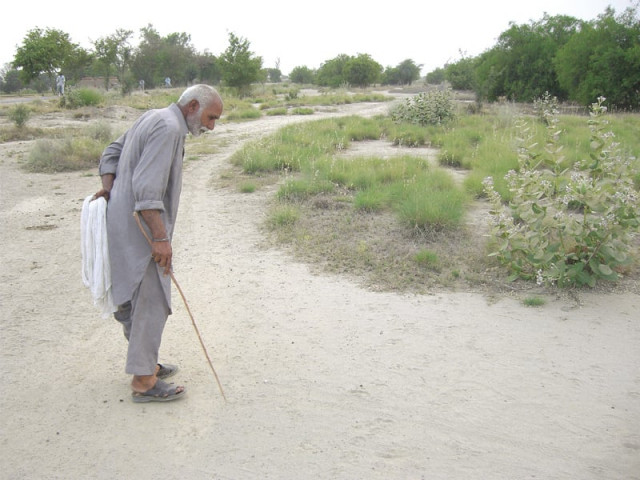Make way for the super sleuth
Rural detectives rely on little more than their well-honed sense of smell to track down criminal and settle disputes.

This is because Abu Talib is a well-known village detective or ‘khoji’. An elderly man, he says he has been a ‘detective’ in his village for the past 50 years. He lives on the outskirts of Multan and has been helping the police bring criminals to justice, using skills he claims to have perfected over time.
‘Detectives’ like Abu Talib are very commonly found in Punjabi villages. The origin of this profession can be traced back to the time the British ruled the subcontinent. Some legacies of the British are familiar — our Constitution, our education system and railway line. But some, like the tradition of hiring locals to help the police fight crime, are not so familiar. This system was put into place because of the wary disposition of the British, but worked well for both them and the locals; it provided employment opportunities to villagers and also helped the foreigners maintain law and order, because locals knew the customs and language better.
The issues these village detectives or ‘khojis’ cover range from petty crime to theft and murder. They are hired for surveillance purposes and function parallel to the police and the local justice system known as Panchayats. In the light of the ineffectiveness of the police and local system, where constant transfers leave officers in unfamiliar territory and where prejudice sometimes seeps into decisions made by the elders of the village, these locals come to the rescue.
These untrained sleuths claim they have developed amazing powers of detection and deduction. “By looking at an impression of a criminal’s fingers we can tell what their height and weight is, and make many informed predictions about their personality… and we only use our hands and fingers as measuring tools,” says Salman, who has been a local detective for the past thirty years. Despite having no formal education he has successfully helped the police convict many criminals.
Not only do ‘khojis’ track down offenders, they also monitor suspects on a daily basis before charging them for a particular crime and handing them over to the authorities. Ashtar Nakhe, who has been credited with helping the police find the culprits accused of cannibalism in Bhakkar recently, says: “My life revolves round my achievements and I’ve acquired a lot of prestige working alongside the district police. I take great pride in my profession.” He claims to have tracked down many robbers, dacoits, murderers and serial killers. He also says that people involved in grave robbing were eventually arrested by the police after he trailed the streets of Khawar Kalaan, trying to trace footprints left behind at the graves, and finally marked the culprit’s house for a police raid.
This profession does not come without drawbacks. The detectives complain about being paid poorly by the police for their services. They grudgingly agree to spy for a mere Rs500-3,000 per case. However, when hired by victims themselves they tend to pocket more money, sometimes around Rs5,000-10,000. Abu Talib, on the other hand, refuses to accept money from poor clients; he considers it his duty to solve their cases without any financial gain. Salman says the amount of money he charges depends on the financial background of his clients. The profession is also marked by others perils where the detectives sometimes invoke enmity among others.
The police seem to be all praises for these local heroes, as Mian Muhammad Javed, SP Multan, says: “We cannot deny their support and help in conducting inquiries. They may have no legal presence in the constitution but are valued detectives when it comes to investigating criminal activity in the villages.”
He adds that although these people have not been professionally trained in the field they resemble “James Bond”.
These rural detectives are sought after when the police fail to trace the real lawbreaker. Having spent their lives in the same village in which the offender probably also lives, they find it relatively easy to track down the criminal, or so they say.
And so ‘khojis’ like Abu Talib continue to snoop and sleuth, secure in the knowledge that the law won’t interfere in their activities. As the sun sets in this village near Multan, Abu Talib draws circles in the sand around a set of tracks. He claims he already knows who they belong to.
Published in The Express Tribune, Sunday Magazine, July 10th, 2011.



















COMMENTS
Comments are moderated and generally will be posted if they are on-topic and not abusive.
For more information, please see our Comments FAQ